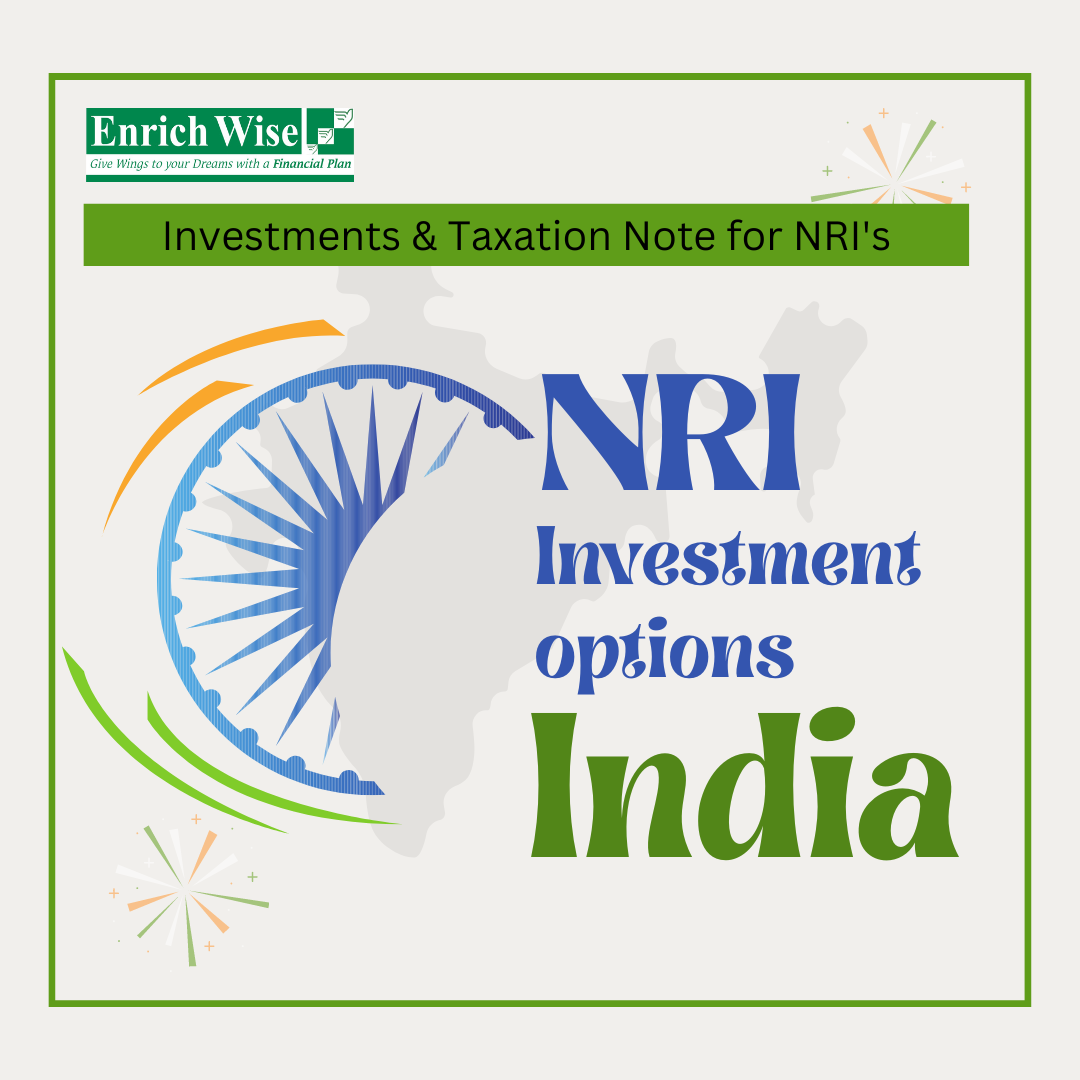How can NRI’s Invest in India and What are the Tax Implications?
Investing in India can be a lucrative opportunity for Non-Residential Indians (NRIs) looking to diversify their portfolios and tap into the growth potential of the Indian economy. However, investing as an NRI in India also involves dealing with various tax implications, which can be complex and confusing. In this note, we will explore the basics of investing and taxation for NRIs in India.
Investment options for NRIs in India:
- Equity investments: NRIs can invest in Indian stock markets through a portfolio investment scheme (PIS) account. They can purchase shares of Indian companies listed on stock exchanges such as the Bombay Stock Exchange (BSE) and the National Stock Exchange (NSE).
- Real Estate: NRIs can also invest in real estate in India, either by purchasing a property or investing in real estate investment trusts (REITs). However, it’s important to keep in mind that NRIs are subject to certain restrictions and regulations when it comes to buying property in India.
- Fixed Income Instruments: NRIs can also invest in fixed income instruments such as bonds and fixed deposits issued by Indian companies and financial institutions.
NRIs can invest in mutual funds and stock markets in India through the following steps:
- Open a Non-Residential External (NRE) account: This is a type of bank account in India that allows NRIs to hold and manage their Indian income in Indian Rupees. The NRE account also enables NRIs to repatriate their funds back to their country of residence.
- Obtain a PAN (Permanent Account Number) card: A PAN card is a unique 10-digit number that is mandatory for all financial transactions in India, including investments in mutual funds and stock markets. NRIs can apply for a PAN card online through the Income Tax Department’s website.
- Choose a mutual fund or stockbroker: NRIs can invest in mutual funds in India through a mutual fund company or a stockbroker. They can do research and compare different options to choose the best one that meets their investment goals and risk tolerance. OR Connect to experienced professionals to seek Help. USA and Canada based NRI has restrictions while investing in India due to FATCA implications.
- Invest in mutual funds: NRIs can purchase mutual fund units through the mutual fund company or stockbroker by transferring money from their NRE account. They can choose from a variety of mutual fund schemes, including equity, debt, and hybrid funds.
- Invest in the stock market: NRIs can purchase shares of Indian companies listed on stock exchanges such as the Bombay Stock Exchange (BSE) and the National Stock Exchange (NSE) through a stockbroker. They can choose from a wide range of equity, debt, and derivative products.
Taxation for NRIs in India:
- Income Tax: NRIs are subject to Indian income tax on their income earned in India. This includes income from salaries, rental income, and capital gains from the sale of securities or property. The tax rate for NRIs is the same as that for residents of India.
- Capital Gains Tax: Capital gains tax is levied on the sale of capital assets such as shares, property, and mutual funds. Short-term capital gains (STCG) are taxed at the marginal tax rate, while long-term capital gains (LTCG) are taxed at 20% with indexation.
- TDS (Tax Deduction at Source): TDS is a system of deducting tax at the source of income. TDS is applicable to the interest earned on fixed deposits and is deducted at the rate of 10% for NRIs.
- Double Taxation Avoidance Agreement (DTAA): India has entered into double taxation avoidance agreements with several countries to prevent NRIs from being taxed twice on the same income. Under these agreements, the tax paid in one country can be credited against the tax liability in the other country.
Investment in India through a PIS account:
A Portfolio Investment Scheme (PIS) account is a special bank account that NRIs can open with authorized dealers in India to invest in the Indian stock market. The Reserve Bank of India (RBI) regulates the PIS account, and all transactions through this account are subject to the Foreign Exchange Management Act (FEMA).
NRIs must furnish the following documents to open a PIS account:
- PAN card
- Proof of identity and residence
- Bank account details in the country of residence
- Foreign inward remittance certificate (FIRC)
Conclusion:
Investing in India can be a lucrative opportunity for NRIs, but it is important to be aware of the tax implications involved. NRIs must ensure that they comply with the tax laws of both the country of residence and India, to avoid any penalties or legal consequences. It is advisable to seek the assistance of a financial advisor or tax expert to ensure that their investments are structured in a tax-efficient manner.
For More Information about Investing in India and Tax options , you may connect to our team of experienced professionals. Team Enrichwise carries a impeccable reputation and has been serving clients worldwide since 2005 in Tax / Mutual Funds/ Stock Market Investing. Email : planner@enrichwise.com / or Whatsapp at 9821860804


